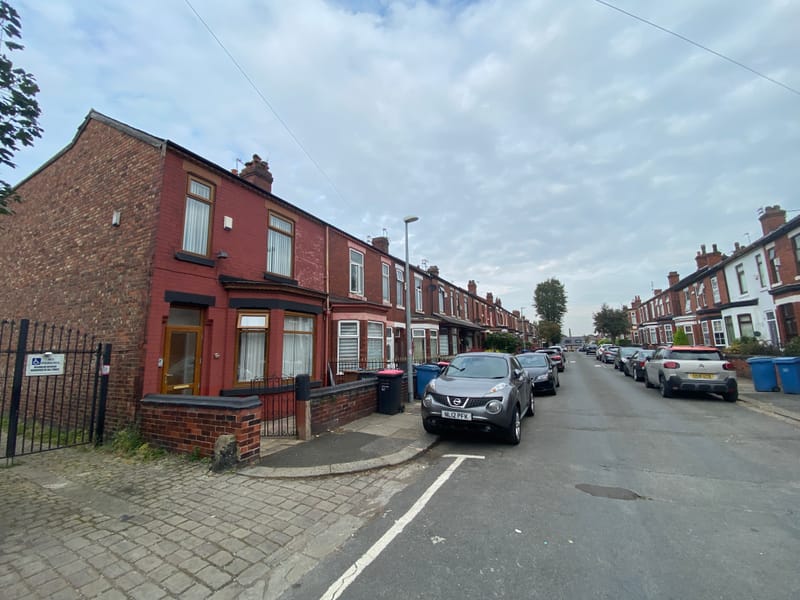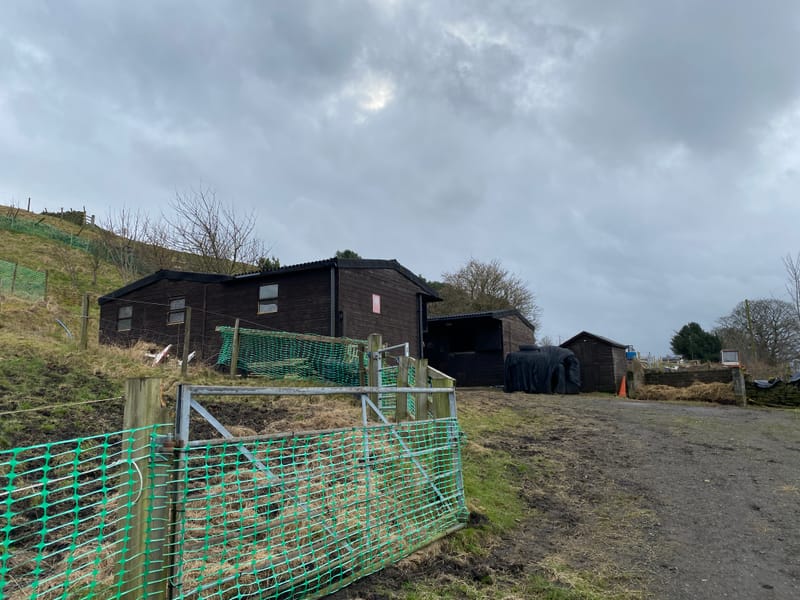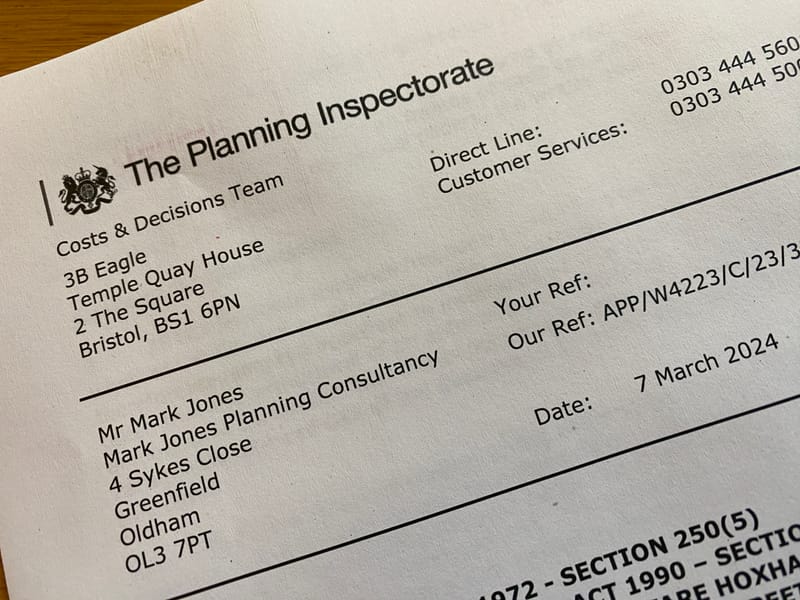Award of Cost

Can an Award of Costs be granted to cover the cost of appealing?
Local planning authorities, appellants and interested parties who have taken part in the process, including statutory consultees, may apply for costs, or have costs awarded against them. A party applying for costs may have costs awarded against them, if they themselves have behaved unreasonably.

What type of behaviour may give rise to a procedural award against a local planning authority?
Local planning authorities are required to behave reasonably in relation to procedural matters at the appeal, for example by complying with the requirements and deadlines of the process.

What type of behaviour may give rise to a substantive award against a local planning authority?
Learn More
Case Study 1 - Change of use to restaurant in a Conservation Area and shared use of car park with nearby offices
Officers of the Council recommended approval of the scheme, but the Council's Planning Committee refused planning permission on the grounds that the shared use of the car park in the evenings and at weekends was unenforceable. A full award of costs was justified.
Learn More
Case Study 2 - Two infill houses
The Council's Planning Committee refused planning consent on the grounds of highway safety and accessibility to key services against Officer's recommendation and a partial award of costs was justified.
Learn More
Case Study 3 - Imposition of planning condition restricting B1 office to be connected to farming business and restrictions on hours of use
Planning Officers recommended approval of a planning application to convert a barn into an office, but recommended restricting its use to the farm activities an to restrict hours of use. The Council declined a request to remove the restrictions. A full award of costs was justified.
Learn More
Case Study 4 - Removal of restrictive use condition to allow building to be used as dwellinghouse
The Council failed to substantiate its decision that the proposal would result in inappropriate development in the Green Belt and a partial award of costs was justified.
Learn More
Case Study 5 - Assessed development against out of date Supplementary Planning Guidance
The Inspector concluded Harrogate Borough Council had assessed the proposal against an outdated Supplemental Planning Document (SPD) that did not have development plan status instead of the Framework and the Harrogate Local Plan policies. The SPD was adopted in 2005. The Council prevented development which should have been permitted and a Full Award of Costs was granted.
Learn More
Case Study 6 - Costs award on the basis that the proposed development should reasonably have been permitted
The case involved the change of use of dwellinghouse to a five person HMO. The Council had removed permitted development rights for such conversions. The Council did not have any detailed planning policies regarding how to assess HMOs, but did have a Council adopted HMO Standards, throughs its Licensing Department. The Inspector concluded that the proposed development should reasonably have been permitted and a Full Award of Costs was justified.
Learn More
Case Study 7 - Full Award of Costs - Detached house in Green Belt Location -Council failed to substantiate its refusal reasons
In granting permission a Full Award of Costs was granted on the grounds that the Council has failed to substantiate its refusal of planning permission. It has provided vague assertions about the development’s impact which are unsupported by any objective analysis. I find this constitutes unreasonable behaviour contrary to the guidance in the Framework and the PPG and the appellant has been faced with the unnecessary expense of lodging the appeal. Update - Sept 2023 Following the previous appeal success a further application for all Reserved Matters was submitted to the Council. The Council failed to engage during the process and did not acknowledge receipt of amended highway plans. The Appellant appealed against the Council's failure to make a decision within the prescribed time as time was running out to lodge an appeal. The Planning Inspector granted permission for all Reserved Matters and once again granted a further Full Award of Costs against the Council on the following ground: "Taking the above matters into consideration, I find that the Council by not acknowledging receipt of amended plans which would likely have overcome highway objections and was the only point of dispute between the parties combined with not engaging with the applicant during the application process has resulted in the wasted time and expense of lodging an appeal for the applicant."
Learn More
Case Study 8 - Award of Costs granted due to failure to undertake a site visit
The case involved a proposed rear extension to a semi-detached house. The Council Planning Officer was unable to visit the site due to workload pressures and asked the Architect to supply photographs without visiting the site. From the photographs and Google aerial views the Council came to the conclusion that the scheme was unacceptable and caused harm. The Planning Inspector concluded: "As a result, the LPA refused a scheme which was clearly approvable and the lack of a site visit, in my opinion, was a significant contributor to the refusal. I therefore consider that the LPA has acted unreasonably in this respect."

Case study 9 - Full Award of Costs - Conditions did not meet the necessary planning tests - unnecessary, unreasonable or not precise.
Environmental Health conditions relating to dust, fires and emissions were not considered reasonable as they are more appropriately dealt with under other legislation. A condition relating to an asbestos survey was withdrawn by the Council. Conditions were amended to ensure that development could start without any pre-development conditions and some were amended for precision. As is so often the case the Council imposed a condition that removed permitted development rights for extensions, alterations and outbuildings on the basis of its impact on the openness of the Green Belt and on the basis of protecting the character of the area. Such a condition is contrary to Government advice which states that planning conditions should not be used to restrict national permitted development rights unless there is clear justification to do so.

Case study 10 - Award of Costs - Enforcement Notice flawed and should not have been served without more diligent investigation
The Council served an enforcement notice which contained a number of errors. The errors were brought to the Council’s attention shortly after the notice was served, but it was not immediately withdrawn. Instead, the Council only withdrew the notice almost a month later and after the appellant lodged an appeal against the notice. The Planning Inspectorate found that the Council should have carried out more diligent investigation and ensured that the notice was accurate in all respects before serving it in the first place. The Inspectorate found that this amounts to unreasonable behaviour with the scope of paragraph 048 of the costs guidance. The result of the Council’s actions was to cause the appellant to incur wasted time in submitting an unnecessary appeal.



